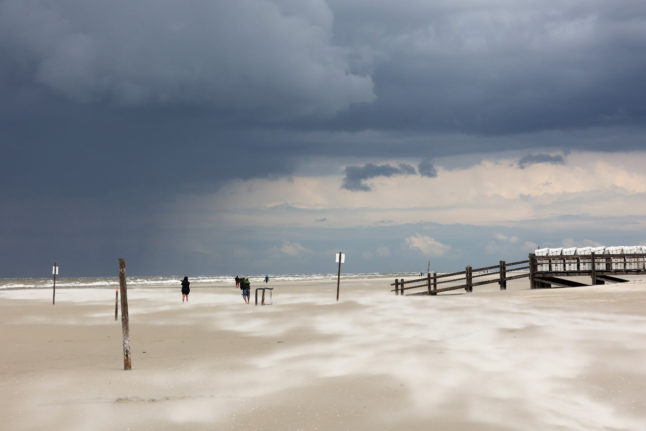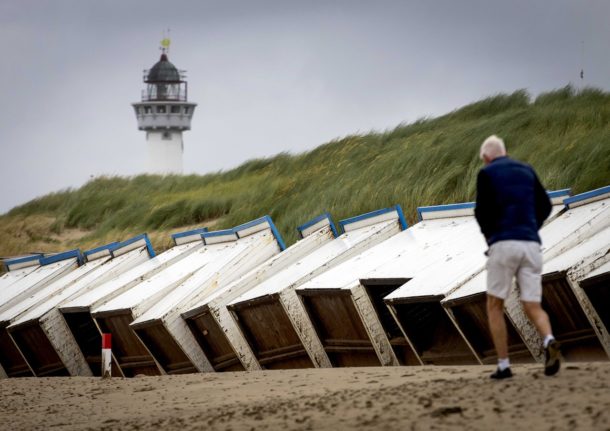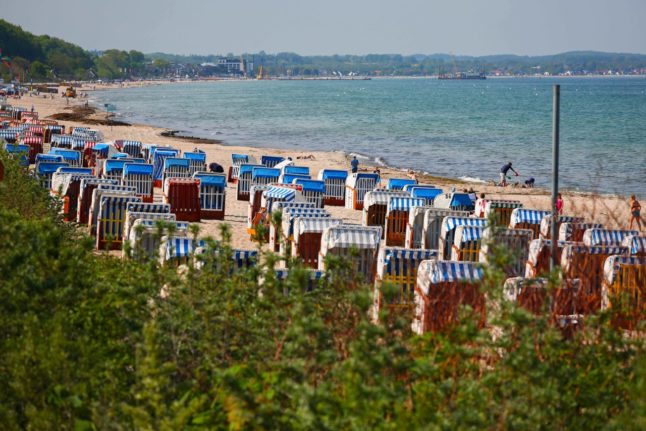Storm Poly packed howling winds of up to 146 km/h (90 mph), toppling trees and forcing the cancellation of 400 flights from Amsterdam’s Schiphol airport, one of Europe’s busiest hubs.
Meteorologists said the storm was the strongest on record to hit the Netherlands in the summer months and issued a rare “code red” warning for millions of people in the low-lying nation to stay indoors.
A 51-year-old woman was killed when a tree fell on her car in the Dutch city of Haarlem, while a 64-year old woman died after being struck by a falling tree in the German town of Rhede near the Dutch border, police said.
Two men were seriously injured in Amsterdam, one when a tree fell on his car, while a second was believed to have been hit by falling power lines, local media said.
A tree also fell on a houseboat in one of Amsterdam’s historic canals, while another toppled onto a tram in The Hague, though no one was hurt.
Howling winds
Schiphol Airport said the number of flights would “gradually improve” as winds started to drop but would remain disrupted for the rest of the day.
“At the moment, 400 flights have been cancelled,” a Schiphol spokesperson told AFP.
The airport is a major hub for connecting flights from Asia, the Middle East and the United States to the rest of Europe.
Eurostar trains from Amsterdam to London and high-speed rail services to the German cities of Cologne and Hamburg were also called off, while many domestic trains were cancelled, Dutch train operator NS said.

Most Dutch domestic trains were cancelled, including those to Schiphol airport, causing further misery for travellers.
Several hundred people were stranded at Amsterdam’s central station, including students touring Europe for their summer holidays, an AFP journalist said.
“They told me all the trains were cancelled. We’re going on a bus now to Brussels that’s going to get there at 2am,” said British student Abby Scott, 18.
“I’m supposed to go to a party tonight — I think I might just walk to The Hague,” joked Ariane Gentile, 64, a school teacher.
Raging winds caused destruction across the country, with an entire row of trees falling on houses in a street in Haarlem, and beach houses and even a school damaged in northern provinces.
‘Code red’
The government sent out a mobile phone alert urging people to stay indoors in North Holland province, which includes Amsterdam, and to call overstretched emergency services only in “life-threatening” situations.
The Dutch meteorological service KNMI said winds of force 11, the second highest on the scale, were measured along with a gust of 146 km/h measured in the northern port of IJmuiden.
It was the “first very severe summer storm ever measured” in the country, Dutch weather service Weerplaza said, adding that the gusts were also the strongest ever recorded in the summer in the Netherlands.
The last storm of similar strength to hit the Netherlands at any time was in January 2018, it said.
Storm Poly came a day after a small tornado hit the central city of Apeldoorn, causing damage but no injuries, local media said.
With around a third of the country lying below sea level, the Netherlands is vulnerable to extreme weather and the effects of climate change, and has a huge system of water defences.
A violent North Sea storm on the night of January 31st to February 1st, 1953, killed more than 1,836 Dutch people.
By Danny Kemp



 Please whitelist us to continue reading.
Please whitelist us to continue reading.
Member comments